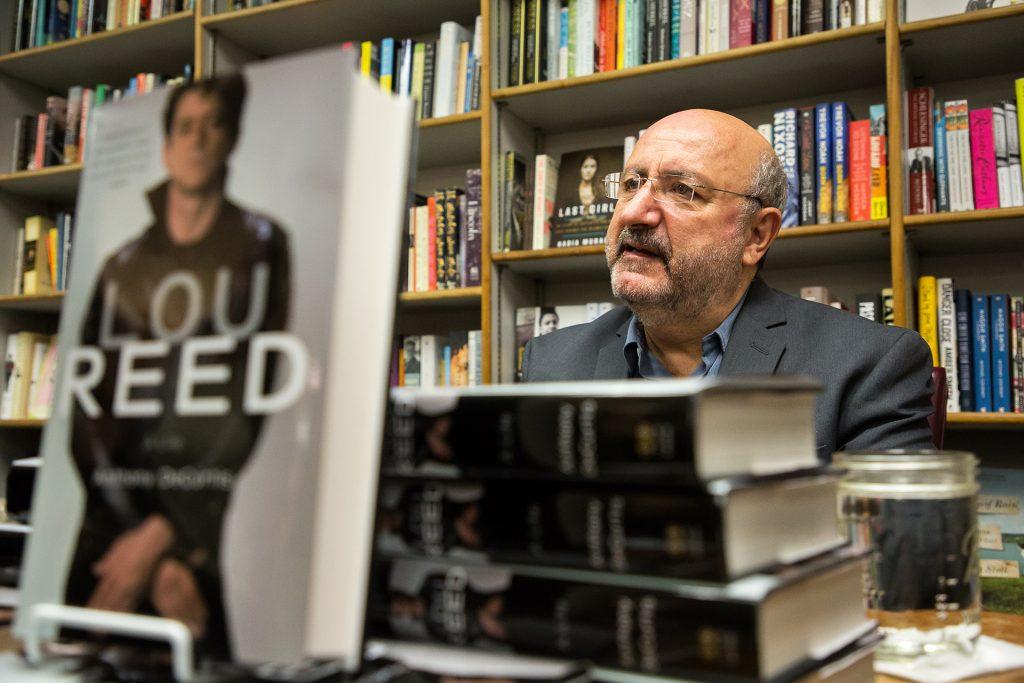When most people picture Lou Reed, they see him as a bad boy with the leather and studs, the lead singer of the 1970s band The Velvet Underground. However, they don’t seem to remember the man behind the leather. Anthony DeCurtis changes all that with his new book, Lou Reed: A Life.
DeCurtis, a contributing editor for Rolling Stone and a distinguished lecturer at the creative-writing program at the University of Pennsylvania, read a few passages of his book at Prairie Lights, 15 S. Dubuque St., on Monday.
The first passage read was set in the 1980s Midwest and talked about Reed’s involvement with Farm Aid, the campaign founded by Willie Nelson, John Mellencamp, and Neil Young to help raise money for farmers who were in debt.
Reed was personally invited by Bob Dylan to perform at the first Farm Aid benefit concert in Champaign, Illinois, in 1985.
Lou Reed went on to perform for Farm Aid in 1987 and again in 1990, until the relationship with the campaign soured when Mellencamp invited Guns ’N’ Roses to perform at the show in 1990, a controversial choice that left many people, including Reed, upset.
DeCurtis also read selections about songs Reed wrote during his career, including “Walk on the Wild Side” and “Coney Island Baby.”
“Walk on the Wild Side” was produced by David Bowie and Mick Ronson. Reed was influenced to write the song by Nelson Algren’s novel A Walk on the Wild Side and his experiences at Andy Warhol’s studio, The Factory.
The song differed from Reed’s musical style because it sounded jazzier and lighter than the usual sounds of loudness and screeching.
“Coney Island Baby” was one of Reed’s most romantic songs in his career. He dedicated both the song and the album of the same name to his then girlfriend, Rachel. It was about his love for her and also dealt with his complicated relationship with his sexuality.
After reading selections from his book, DeCurtis opened the floor to questions from the audience.
When asked about what he thought about Reed while writing this book, he said that he got a deeper understanding of who Reed was as a person.
“It’s kind of like swimming across the ocean; it’s like, ‘should I go back or keep going?’ ” he said.
DeCurtis told the audience of his last meeting with Reed, in 2012, a year before the musician died. He invited Reed to speak at the University of Pennsylvania, which he agreed to months before the event happened. Two days before the event, DeCurtis had to talk to Reed and tried to persuade him to go.
Reed ultimately did end up going, and that’s the last time DeCurtis spoke or saw him alive.
As for his motivations for writing the book, DeCurtis said, “Lou deserved a biography like the famous American writers that he admired.”
DeCurtis’ relationship with Reed was casual, and they got along well. They met at an airport in Cleveland and talked for three hours.
Both men could talk about similar topics, such as New York and literature, which Reed enjoyed.



